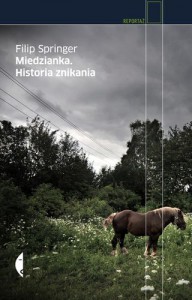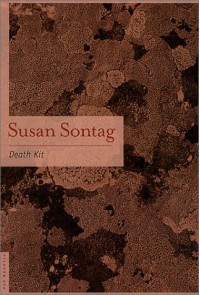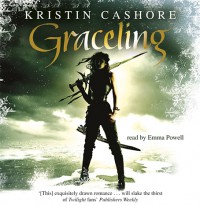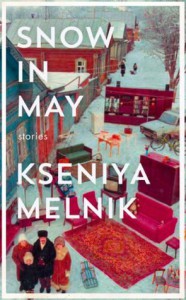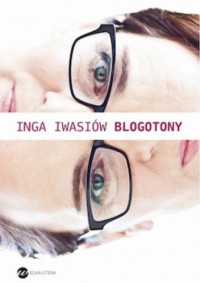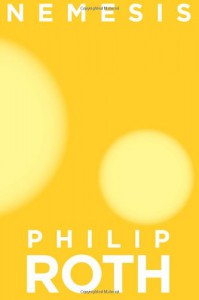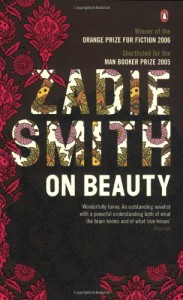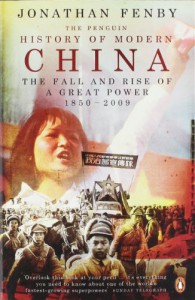
I first heard of Hitchens on the day of his death – in my defence I was still quite new to the UK and was just getting familiar with the intellectual life here (insert a self-mocking chuckle here). What I managed to gather from the news that day was that he was UK’s no. 1 atheist, so that immediately put him on my radar and when I bought a Kindle this was the first book I bought for it (it was also a Kindle Daily Deal). It was an updated edition which included a heart-felt introduction Hitchens wrote when he already knew he was dying.
“When I first formed the idea of writing some memoirs, I had the customary reservations about the whole conception being perhaps “too soon.” Nothing dissolves this fusion of false modesty and natural reticence more swiftly than the blunt realization that the project could become, at any moment, ruled out of the question as having been undertaken too “late.”"
Of course, he also emphasises that coming to terms with his mortality did not make him find Jesus, contrary to what many religious people predicted would happen. Personally, I find it quite offensive when people imply I will ‘start believing’ in God once I find myself in a very difficult situation or discover I have cancer. It also speaks rather poorly of the foundation of their faith.
So, Hitchens, eh? What a guy.
Before we talk in more detail about him, let’s just get one thing out the way – Hitchens was a sexist. Maybe not a militant misogynist, but most certainly sexist. The world he presents in his memoir is a world almost completely devoid of women. We will only find an idealised portrait of his glamourous mother and some paragraphs praising Susan Sontag. Other than that, it’s a man’s, man’s world. There are influencers, thinkers, friends, gay-lovers, enemies – all described in painstaking detail, sometimes mind-numbing details (like here-is-the-first-time-I-saw-Martin-Amis and here-are-the-first-words-Martin-Amis-said-to-me) and they all have dicks. If there is a passing mention of a woman editor or someone it is always accompanied by a qualifying adjective referring to her looks. His first wife is nowhere to be found in this book, his second wife lurks in the margins. One might hope it was done to protect her privacy but during one interview Hitchens, when asked who Carol was, couldn’t really say anything other than that she was his wife (and seemingly that was her only life accomplishment).
His bromance with Martin Amis gets a lot of air time here. Hitchens even goes on describing various word-games he played with him and his other pals – they basically consisted of replacing various words in book or movie titles with expletives, something I’m sure his 11 year old readers will find very amusing. These bits are very self indulgent, but on the other hand, if there is one work where a certain self-indulgence is permitted it must be one’s memoir. The same goes for all the inane name dropping (or ‘carpet bombing’ as one reviewer described it). Hitchens had seemingly endless caches of ‘dear friends’ and all were absolutely best at what they did. For example, he insists that his best mate Amis is a linguistic genius but the examples to back are of this sort: Amis called some men at a black tie event ‘tuxed fucks’. I spent a good part of a day wondering if there was some super clever pun there I missed but sometimes Hitchens’ sense of humour is just very juvenile.
I have asked many people what they thought of Hitchens and discovered that he was both disliked and respected by both the left and right. A worthy achievement, for here is a man who didn’t just adopt a certain political stance and accepted it with benefit of inventory. He cherry-picked according to his own moral code and thus made enemies everywhere he went. You might disagree with some of his views (it would be unlikely for you to disagree with ALL of his views) but such a political courage must be admired (even if his dogmatism, absolute lack of any self-doubt and occasional pettiness might infuriate).
In his own words:
“I am often described to my irritation as a “contrarian” and even had the title inflicted on me by the publisher of one of my early books. (At least on that occasion I lived up to the title by ridiculing the word in my introduction to the book’s first chapter.) It is actually a pity that our culture doesn’t have a good vernacular word for an oppositionist or even for someone who tries to do his own thinking: the word “dissident” can’t be self-conferred because it is really a title of honor that has to be won or earned, while terms like “gadfly” or “maverick” are somehow trivial and condescending as well as over-full of self-regard. And I’ve lost count of the number of memoirs by old comrades or ex-comrades that have titles like “Against the Stream,” “Against the Current,” “Minority of One,” “Breaking Ranks” and so forth — all of them lending point to Harold Rosenberg’s withering remark about “the herd of independent minds.” Even when I was quite young I disliked being called a “rebel”: it seemed to make the patronizing suggestion that “questioning authority” was part of a “phase” through which I would naturally go. On the contrary, I was a relatively well-behaved and well-mannered boy, and chose my battles with some deliberation rather than just thinking with my hormones.”
All that aside, Hitchens is an intellectual of the kind that we don’t often see in public life anymore (lamentably). Despite his sexism and some of his views, I will happily admit that I am insanely jealous of his erudition. When I grow up, I will be an intellectual too. His prose is marvellous – try as I might, I couldn’t find any fault in it. In fact, it was just so full of quotables that despite my previously mentioned reservations, I enjoyed myself tremendously reading this book. Here are some of his clever soundbites.
On religion:
“But since then I have had every chance to become sickened by the very idea of “martyrdom.” The same monotheistic religions that condemn suicide by individuals have a tendency to exalt and overpraise self-destruction by those who kill themselves (and others) with a hymn or a prayer on their lips.”
“When the late Pope John Paul II decided to place the woman so strangely known as “Mother” Teresa on the fast track for beatification, and thus to qualify her for eventual sainthood, the Vatican felt obliged to solicit my testimony and I thus spent several hours in a closed hearing room with a priest, a deacon, and a monsignor, no doubt making their day as I told off, as from a rosary, the frightful faults and crimes of the departed fanatic. In the course of this, I discovered that the pope during his tenure had surreptitiously abolished the famous office of “Devil’s Advocate,” in order to fast-track still more of his many candidates for canonization. I can thus claim to be the only living person to have represented the Devil pro bono.”
On the very British phenomenon of the boarding school experience:
“The great J.G. Ballard, who had had the reverse of the Ian Watt experience in that he’d been interned by the Japanese (Empire of the Sun) as a small boy, before being sent to the same house in the same boarding school as me, once did jokingly say that the food at The Leys was inferior to the Lunghua camp in Shanghai, but was later to admit that he’d been agreeably surprised by how comparatively little torture there had been.”
On nationalism:
“I have often noticed that nationalism is at its strongest at the periphery. Hitler was Austrian, Bonaparte Corsican. In postwar Greece and Turkey the two most prominent ultra-right nationalists had both been born in Cyprus. The most extreme Irish Republicans are in Belfast and Derry (and Boston and New York). Sun Yat Sen, father of Chinese nationalism, was from Hong Kong. The Serbian extremists Miloševi and Karadži were from Montenegro and their most incendiary Croat counterparts in the Ustashe tended to hail from the frontier lands of Western Herzegovina. Falklands nationalism was too mild to stand comparison with any of these toxic movements, but the loyalist atmosphere on the lawn that night, with a Navy band playing and ancient settler families inquiring after one another’s descendants, was of an unquestioning and profound and rooted kind that one almost never encountered in the rest of a declining and anxious Britain. It was a bit much even for Commander Hitchens, who privately thought the islands slightly absurd and probably undefendable. When the time came when his old Royal Navy was sinking and shattering the Argentine fleet, the cadet school of which was a training camp for torture and rape, I was one of the very few socialists to support Mrs. Thatcher and he was one of the very few Tories to doubt the wisdom of the enterprise. So it goes.”
On squirrels:
“Until some time after the war, the squirrels of England had been red. I can still vaguely remember these sweet Beatrix Potter–type creatures, smaller and prettier and more agile and lacking the rat-like features that disclose themselves when you get close to a gray squirrel. These latter riffraff, once imported from America by some kind of regrettable accident, had escaped from captivity and gradually massacred and driven out the more demure and refined English breed. It was said that the gray squirrels didn’t fight fair and would with a raking motion of their back paws castrate the luckless red ones. Whatever the truth of that, the sighting of a native English squirrel was soon to be a rarity, confined to the north of Scotland and the Isle of Wight, and this seemed to be emblematic, for the anxious lower middle class, of a more general massification and degentrification and, well, Americanization of everything.”
(I really hope those squirrels never make it to Poland to replace the lovely red ones.)
The only time I really gritted my teeth was when Hitchens talked about Poland. Not because there was anything wrong with what he was saying but because he seemed to follow this outrageous trend that every English book seems to adhere to and that is of always getting the spelling of Polish names of people or places wrong. Always. Even the simple ones*:
“The first is that of Jacek Kurón, who with his colleague Karel Modzelewski had newly written a “socialist manifesto” from within the forbidding walls of a prison in Poland.”
Hitchens claims Kuroń was one his greatest heroes, and yet he misspells his name each and every time. And I’m quite positive it is Karol, not Karel. It actually really drives me crazy because it happens all the time and I don’t understand why. I have seen ‘Kapuściński’ spelled in so many different fantastic ways I started to think that if they do occasionally get it right it’s just down to statistical chance. I used to take photos of all of those misspellings in various books until I had to stop because it was too depressing. It just strikes me as seriously disrespectful because it takes about 5 seconds to check the correct spelling on Wikipedia. But oh, who cares, let’s just throw together some random consonants in a random order and it’s bound to be Polish.
“The reactionary and anti-Jewish crackdown of 1968, presaged by the arrest and imprisonment of Kurón and Modzelewski, had put all this into reverse. Kolakowski had, like so many of the intellectual leadership of Eastern Europe, been partly deported and partly self-exiled.”
Oh, congratulations. You got ‘Kolakowski’ right, although technically it should be ‘Kołakowski’ but I’ll let you off with this one.
I think my favourite misspelling would be what Hitchens called the Polish equivalent of The Guardian:
“Gazeta Wyborzka,”
(I understand that this will be somewhat amusing only to people who speak Polish).
I know this review does not really have a flow to it but if I were to try to connect all these scattered thoughts into some cohesive narrative, this already long review would turn gargantuan.
What’s my final verdict on Hitchens? I guess I will take a page from his own book - he talks a lot about the danger of meeting your heroes and of finally realising you can criticise them and continue to admire them.
I will leave you with this moving quote on ‘starting over’:
“I once spoke to someone who had survived the genocide in Rwanda, and she said to me that there was now nobody left on the face of the earth, either friend or relative, who knew who she was. No one who remembered her girlhood and her early mischief and family lore; no sibling or boon companion who could tease her about that first romance; no lover or pal with whom to reminisce. All her birthdays, exam results, illnesses, friendships, kinships — gone. She went on living, but with a tabula rasa as her diary and calendar and notebook. I think of this every time I hear of the callow ambition to “make a new start” or to be “born again”: Do those who talk this way truly wish for the slate to be wiped? Genocide means not just mass killing, to the level of extermination, but mass obliteration to the verge of extinction. You wish to have one more reflection on what it is to have been made the object of a “clean” sweep?”
If you would like to read an actually good review of Hitch-22, read this brilliant piece from the New York Review of Books:
http://www.nybooks.com/articles/archives/2010/jul/15/believer/?page=1
Ian Buruma’s review might be a little more critical than mine and features an especially apt dissecting of Hitchens’ Iraq stance, where (bizarrely) Hitchen’s arguments and logic are so weak it could be pulled apart by a reasonably intelligent high school student.
Or if you’d like to see Hitchens ripped to shreds so completely that you almost sense something personal, delight in this New Statesman’s review:
http://www.newstatesman.com/books/2010/05/christopher-hitchens-iraq-self
Actually, reading all the reviews of this book, from the left, centre and right leaning media and from both sides of the Atlantic (and even Australia) was almost as fascinating an experience as reading the book itself, as invariably every reviewer started off by declaring and justifying his position on the Hitchens’ love or hate scale.
*- I realise that these errors might have appeared only in the ebook version and are not Hitchens' fault.
Like me on Facebook for more gossip and stuff.

 4
4

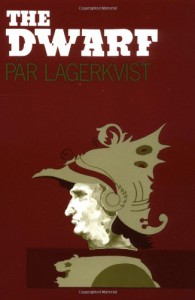
 1
1
